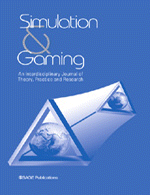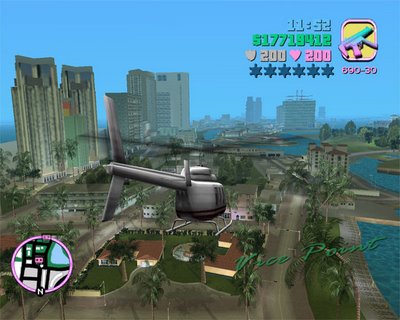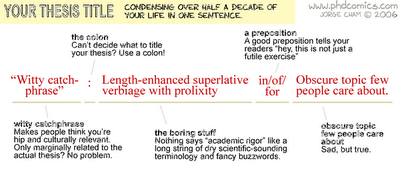Global gaming networks are heterogenous collectives of localized practices, not unified commercial products. Shifting the analysis of digital games to local specificities that build and perform the global and general, Gaming Rhythms employs ethnographic work conducted in Venezuela and Australia to account for the material experiences of actual game players.
Saturday, September 30, 2006
Finished the CSAA Paper
Its so strange to actually make the deadline for something... ...whats happening to me?
Tuesday, September 19, 2006
Unaustralia Conference

So the annual Cultural Studies Association of Australasia Conference is coming soon in December. The theme is Unaustralia, and I managed to do a bit of a procrustean feat on one of my old research streams that I have been looking to publish. Basically, its going to be an update of the final chapter of my honors thesis, with current literature (its amazing how much stuff has come out on strategy games - and how much my research skills have improved), and refocused on Europa Universalis (Paradox Interactive, 2000) and Victoria: Empire Under the Sun (Paradox Interactice, 2002). The dissertation version used Civilization III and Medieval: Total War, both of which are getting a bit long in the tooth, and also importantly don't explicitly reference the Australian colonial period. In EU2 Australia is unclaimed by any European power, and its colonization can take place during the game, in Vicky South and East Australia are Bristish colonies but anything can happen, I've played games where the Netherlands colonized North and West Australia, and one where Britian traded Australia to Brazil for the Phillipines. Here is the abstract that got accepted:
Virtual Unaustralia: Videogames and
This has to be finnished by the end of the month, so I am starting my write up of the new draft featuring the Paradox Interactive games today.
Monday, September 18, 2006
Flux Conference Panel Proposal
Here is the proposal for a panel on Actor-Network-Theory that my buddies Bjorn and Michael and I have put together for the flux postgraduate conference run by the cinema studies department this November.
Panel: Assembling the ANT: Ventilators, Maps, Videogames
Machine Breaths
-
Locative media has routinely been understood through theories concentrated on spatial analysis and the virtual annotation of urban landscapes. Such discourses often rely on a utopian desire to recover stable relations and place-bound modes of community in a global era characterised by the flux of compressed networks of time-space. Paradoxically, these practices rely on the very technologies of reproduction and simulation that Andreas Huyssen understands as being ‘leading players in the morality play of memory.’
Analysis through Design: Examining the Technological and Social Actors in a Videogaming Ecology
-Thomas Apperley
Mobile Media Abstract Accepted!
The organizers of Mobile Media: an international conference on social and cultural aspects of mobile phones, convergent media, and wireless technologies, Larissa Hjorth and Gerard Goggin have accepted my abstract to the conference. Good news for me, have to have a written version of the paper availible for refereeing by the 15/01/07, thats a long time away now.
Don't have much other information about whats going to happen, except for that its on the 02-04/07/07, and its in Sydney. The organizers say there's going to be a lot of people there from around the world so should be cool.
Saturday, September 16, 2006
Videogames: Issues in Research and Learning

So in December 2005 and March 2006, the Sage Journal Simulation & Gaming published a two part special issue on videogames. Included was my article on Videogames and Genres, which appeared in the March 2006 issue (stoked!). Don't know why I haven't mentioned it until now, been out of blogging mode I guess. Anyhow sheck out their site and hopefully you can find out a way to download it legitimately (or just click the link on the bottom of the sidebar).
The editors describe my research: "Apperley examines the aesthetic components of video games, contrasting market-driven genres that pigeonhole video games into prior media genres versus genres based on visual aesthetic or narrative structure. His conclusions highlight the disassociation of video game play, content, and analysis from previously embedded conventions of market, culture and critique." Could not have put it better myself, I love it how some people can just explain to you what the hell you are doing, its like the whole situated play epiphany I had a few moments ago after I discovered what the rest of the world was calling the kind of research I do.
Bottom line for me is that genre is a useful was to explore the complex interrelation between the narrative, the representational and the ludic. That is not all that I think genre can do for Game Studies... ...but more on that later.
Anyway the article is still in the journals top-ten most downloaded (read) articles, at number nine after six months, it was number one from April-June, before slipping to number five and then 8. It has consistently been the most popular from the symposium issue. Hey I guess someone had to write an article about videogame genres didn't they?
Situated Play - I'm Part of a Meme
Starting to think maybe I should join them, so many things to spend money on. Darshana went to the conference they had last year in Vancover and said it was pretty cool, I think I was in Venezuela at the time, or maybe stuck in Melbourne teaching.
Urban Hellraisers in Vice City

Thursday, September 14, 2006
MU: Online v Nintendo & City of Heros v Marvel

I was just looking over some of my fieldwork material today and noticed a few references to Mu: Online. I had seen this game being played a lot - along with Tibia, another free MMORPG - during August-October 2004, but hadn't really noticed any significant play of it when I was in Caracas from March-July 2005. Anyway I was looking over the games site and saw that it had switched to a mixed free/pay service (pay service is called premium) this April. This meant that free players would be limited to four of the game-worlds, and to 60th level, while pay players would get unlimited access. The pay only worlds were also promoted as being bug free (bugs and third-party mods plagued MU: Online back when I was doing my research on it).
So I was looking around on the internet for some news on what happened with MU, because the buzz around the game was pretty big because of the huge size of its regular community (I use community here in the loose sense - but lets say at least it had a hell of a lot of players) all I could find was wikipedia claiming that it was sold by webzen (the Korean developers) to K2 (the current owners) for 2,000,000USD.
During my search I also discovered that Nintendo had been on webzen's case for allowing (out of 1,000s of possibile combinations) characters to be customized that looked like Link (of Zelda fame), in one of the new games it has been beta-testing, S.U.N. (Soul of the Ultimate Nation). Nintendo didn't sue just issued a stern warning. Now apparently this issue has cropped up in the past, according to Gamespot News, with players in City of Heros customizing their characters to closely resemble various Marvel favorates. The dispute between Marvel and City of Heros went from November 2004-December 2005, and resulted in an undisclosed settlement payment to Marvel. Wired News states:
"Considering that defendants own no comic characters themselves, it stands to reason that the comic books to which they refer are those that depict the characters of Marvel and others," wrote Marvel's attorneys in the complaint. "Defendants' Creation Engine facilitates and, indeed, encourages players to create and utilize heroes that are nearly identical in name, appearance and characteristics to characters belonging to Marvel."
The Story is also covered by USA Today.
What I'm wondering is what is the story with the Habbo Hotel game's jedi/sith roleplaying factions?
Monday, September 11, 2006
Mobile Media
Anyway I found the summary of the issues by Mark Finn in AJETS to be pretty sweet, and Aphra Kerr's book had some good stats, I'll have to get around to reading it soon.
Here is the abstract (its over 100 words too long :$) :
Games without Borders: Globalization, Gaming and Mobility in
Using fieldwork data from ethnographic research conducted between March and July 2005, this paper will examine the impact of mobile games on the videogames industry and audiences in
Kerr and Flynn (2003) argue that the structure of the global videogames industry is such that it potentially prohibits many small countries from developing this sector.
Hall (2005) describes the impact that mobile gaming has had on videogame content. Play takes place within a particular context defined by time and space, the stability of this model is challenged by mobile games, which can be played in numerous contexts. Further to Hall’s understanding of context I will argue, based on my own experiences and observations, that culture and social bonds have a particular impact on context. Content, as in the type of game played has a strong correlation to these contexts. Particular contexts suit particular games (content), and vice versa, this explaining the ubiquity of certain games in
